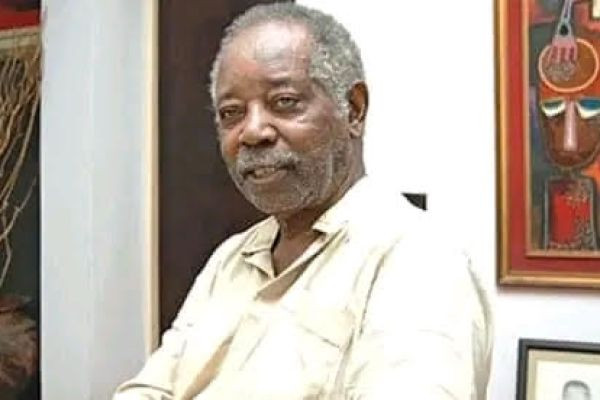Few African scholars have so profoundly reshaped the study of history and redefined the continent’s intellectual identity as Professor Jacob Festus Adeniyi Ajayi, fondly remembered as J. F. Ade Ajayi. A man of exceptional intellect, faith, and foresight, Ajayi stood at the heart of Africa’s academic awakening — restoring dignity, agency, and authenticity to how Africans understand and narrate their own past.
Born on May 26, 1929, in Ikole-Ekiti, Ekiti State, Ajayi grew up in a Christian home that valued discipline, morality, and learning. From an early age, he displayed a remarkable curiosity about the world and an insatiable appetite for knowledge. His childhood in colonial Nigeria, shaped by both traditional African culture and Western education, would later inform the balanced perspective that became the hallmark of his scholarship.
Ajayi began his academic journey at Fourah Bay College in Sierra Leone — one of the earliest citadels of higher learning in Africa — where his passion for history deepened. He went on to the University of Leicester in the United Kingdom and later earned his Ph.D. from the University of London.
His doctoral thesis, Christian Missions in Nigeria, 1841–1891: The Making of a New Elite, became a landmark in African historiography. In it, Ajayi challenged the dominant Eurocentric portrayal of Africans as passive recipients of Western influence. Instead, he demonstrated that Africans actively engaged with, adapted, and reinterpreted Christianity within their own cultural frameworks. This groundbreaking argument shifted the study of African history from dependency theories to one centered on African agency, resilience, and creativity.
Upon his return to Nigeria, Ajayi joined the University of Ibadan’s Department of History, quickly establishing himself as one of the country’s most brilliant intellectuals. By 1963, he was appointed Professor of History, and in 1972, he became Vice-Chancellor of the University of Lagos (UNILAG) — a position he held until 1978.
At UNILAG, Ajayi’s leadership was marked by integrity, vision, and academic reform. He championed institutional autonomy, academic excellence, and intellectual freedom, resisting political interference at a time when Nigeria’s universities faced growing external pressures. His administration expanded facilities, strengthened research, and inspired a generation of young academics to pursue knowledge for national transformation.
Ajayi’s written works remain cornerstones of African historiography. His books — including Christian Missions in Nigeria, 1841–1891 (1965) and A Thousand Years of West African History (co-edited with Ian Espie) — are widely regarded as classics. Through them, he insisted that Africa’s story must be told by Africans, through indigenous values and perspectives. His scholarship helped dismantle colonial distortions and established Africa as a subject of history, not merely its object.
Beyond the classroom, Ajayi was a man of faith, humility, and moral conviction. To his students and colleagues, he was more than a scholar — he was a mentor, a moral compass, and a voice of reason. His Christian values infused his teaching with ethical reflection, reminding those he taught that history is not merely a record of events but a search for truth and understanding.
Internationally, Ajayi’s influence was immense. He served as a consultant to UNESCO, contributed to global dialogues on African education, and held fellowships with both the Historical Society of Nigeria and the Nigerian Academy of Letters. Through his work and mentorship, he helped shape the intellectual foundations of post-independence African scholarship.
Until his passing on August 9, 2014, Ajayi remained a passionate advocate for African intellectual independence. He urged Africans to define their identities through scholarship, art, and cultural renewal. His philosophy — that reclaiming history is central to restoring dignity — continues to guide historians and thinkers across the continent.
Those who knew him personally recall a man of deep humility, disciplined lifestyle, and unwavering integrity. He was a devoted husband, father, and teacher whose legacy transcends the pages of his books.
Today, Professor J. F. Ade Ajayi’s legacy endures — not only through the generations of scholars he inspired but also through the intellectual liberation he championed. He taught Africa to look inward with confidence, to reclaim its narrative, and to see history as both a mirror and a map for the future.
More than a historian, he was a philosopher of identity — a custodian of memory who taught that a people who know their past can shape their destiny.
follow us on whatsapp
https://whatsapp.com/channel/0029VaAOIUe9mrGeBhrju12b
Download our Mobile App for easy access
https://play.google.com/store/apps/details?id=com.edutvmobile.ng&hl=en
Mobile App Lite
https://play.google.com/store/apps/details?id=com.edutvng.lite
https://play.google.com/store/apps/details?id=com.edutvmobile.ng&hl=en
Follow us on Youtube
https://youtube.com/@edutvnigeria
Follow us on LinkedIn -
https://ng.linkedin.com/company/edutvnigeria
Follow us on Instagram
https://instagram.com/edutvnigeria
Follow us on Facebook
https://www.facebook.com/edutvnigeria/









